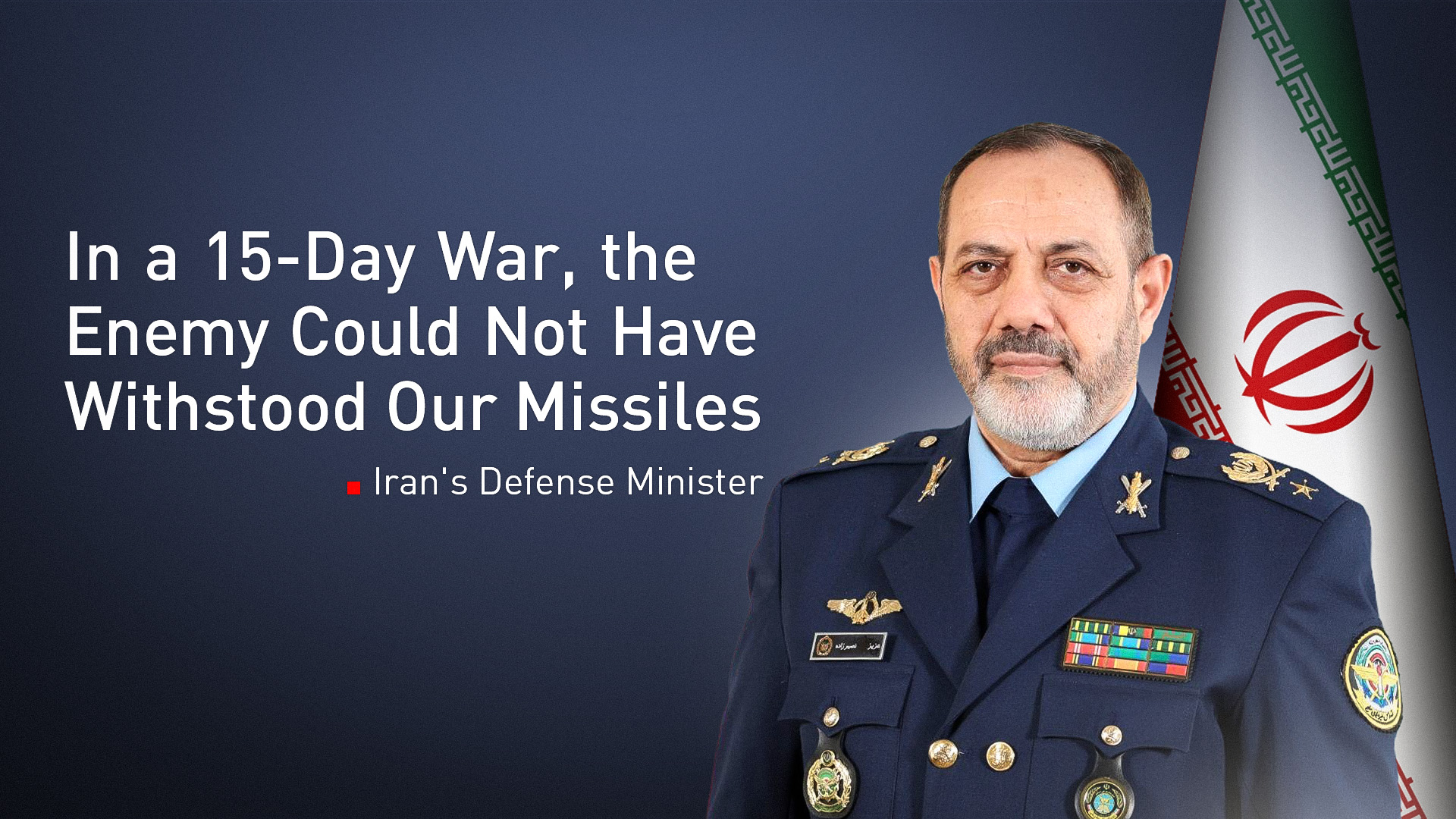Iran Vows New Weaponry in Future Conflict, Cites Lessons from '12-Day War'
Iran's Defense Minister, in a YJC interview, warns of deploying new, unused weapons if Israel attacks again. He detailed advanced missile tech and 100% domestic production, citing lessons from the recent '12-day war' and the need for deterrence against Western-backed threats.

ERBIL (Kurdistan24) – Iran's Minister of Defense has issued a direct warning that any future aggression by Israel will be met with the deployment of new military equipment not previously used, citing valuable lessons learned and advancements made following a recent major conflict. In a detailed interview, he asserted that a combination of military and soft power is essential for deterrence, as showing "the slightest weakness" would invite enemy action.
In a special news interview broadcast on Friday night and reported by the Young Journalists Club (YJC), Brigadier General Aziz Nasirzadeh, the Minister of Defense and Armed Forces Logistics, declared, "If Israel dares to transgress again, we will use new military equipment." He framed this position as a necessity for national survival, stating, "If we show weakness, the enemies will become bolder and act more aggressively."
Nasirzadeh stressed that Iran's defense posture is rooted in the need for self-reliance, noting that his ministry’s duty is to provide "comprehensive support for the armed forces" by relying on domestic production, "because, during a crisis, it is not possible to secure needs from abroad."
According to the YJC report, the Defense Minister characterized the recent conflict, which he referred to as the "12-day war," as a confrontation not with an "ordinary threat, but the Zionist regime, which was supported by the United States and some European countries."
He stated that this experience provided critical insights, adding, "With the experiences gained from the 12-day war, we have planned to do new things for the future."
Geopolitically, Nasirzadeh positioned Iran as a bulwark against foreign influence in a strategic region rich with resources, stating, "The Islamic Republic is inherently anti-oppression and will not submit to it." He added that the "West cannot tolerate a country like the Islamic Republic, Russia, or China standing against them" and that "the Americans have constantly created obstacles for us."
Detailing specific military capabilities, Nasirzadeh revealed that some of Iran’s most advanced missiles were not deployed in the recent conflict.
In response to a question reported by YJC, he confirmed the "Qasem-e Basir" missile, described as Iran’s "most accurate precision-strike missile," was not used.
He explained that this missile incorporates new technology resistant to electronic warfare that allows it to perform a "complete precision strike." Furthermore, he mentioned a new generation of missiles, tested over the past year, that feature advanced warheads with maneuverability upon entering the atmosphere, allowing them to evade enemy air defense systems rather than following a simple ballistic trajectory.
"We have not yet used these missile technologies in the twelve-day war," he stated.
Nasirzadeh also offered an assessment of the conflict's trajectory, suggesting that Israel's defensive capacity was diminishing as the war progressed.
"If the twelve-day war had reached fifteen days, in those final three days, the enemy might not have been able to defend against any missile," he told the YJC program. He described missile defense as a difficult, time-consuming, and expensive endeavor, asserting that continuing the war was "definitely to their disadvantage," which he claimed led them to "request a ceasefire."
The Iranian Defense Minister heavily emphasized Iran's industrial self-sufficiency, telling YJC that missile construction is "one hundred percent produced domestically" with "no reliance on foreign sources whatsoever."
He revealed the complex nature of the conflict, noting that the Ministry of Defense was a primary target, with attacks on its locations and residential areas. "This war was very complex and strange, and we had never experienced such a hybrid war before," he said, citing a cyberattack on Bank Sepah timed to disrupt salary payments to armed forces personnel.
To ensure production resilience, Nasirzadeh explained that the ministry collaborates with over 8,000 private companies, of which 1,450 are knowledge-based. This decentralized network ensures that "when one of our infrastructures is targeted, our production continues."
He also made an appeal to Iran’s scientific elites, advising them against emigration and highlighting the ministry’s capacity to absorb talent, having recruited 257 members of the National Elites Foundation this year. Regarding artificial intelligence, he acknowledged being "a little behind the enemy" but confirmed that Iran has started late but "started well" to institutionalize the technology and move toward producing AI-equipped hardware.
The twelve-day war between Israel and Iran, fought from June 13 to 24, 2025, was the most significant direct confrontation between the two countries to date. The conflict was rooted in longstanding hostilities that began after Iran’s 1979 Islamic Revolution, which established Tehran’s opposition to Israel and its support for regional armed groups. Israel, for its part, has consistently viewed Iran’s nuclear and missile programs as major security threats.
The fighting began on June 13, when Israel launched a surprise operation targeting Iranian nuclear facilities, missile bases, and military command centers. Several senior Iranian commanders were killed in the strikes, and large numbers of civilians fled Tehran as bombardments hit key infrastructure. Iran responded with waves of missile and drone attacks on Israeli cities, which were largely intercepted by Israel’s air defense systems but still caused casualties and damage.
On June 22, the United States joined the conflict with airstrikes on Iran’s main nuclear sites. The following day, Iran retaliated by launching missiles at a U.S. military base in Qatar, though casualties were avoided. A U.S.-brokered ceasefire on June 24 ended the hostilities.
Official figures from HRANA indicated that the Israeli strikes killed 1,190 people and wounded over 4,000 in Iran, while Israel reported around 28 killed and over 3,000 wounded in Israel. The brief but destructive conflict left significant damage to Iran’s military and nuclear infrastructure and heightened concerns over regional security and stability.